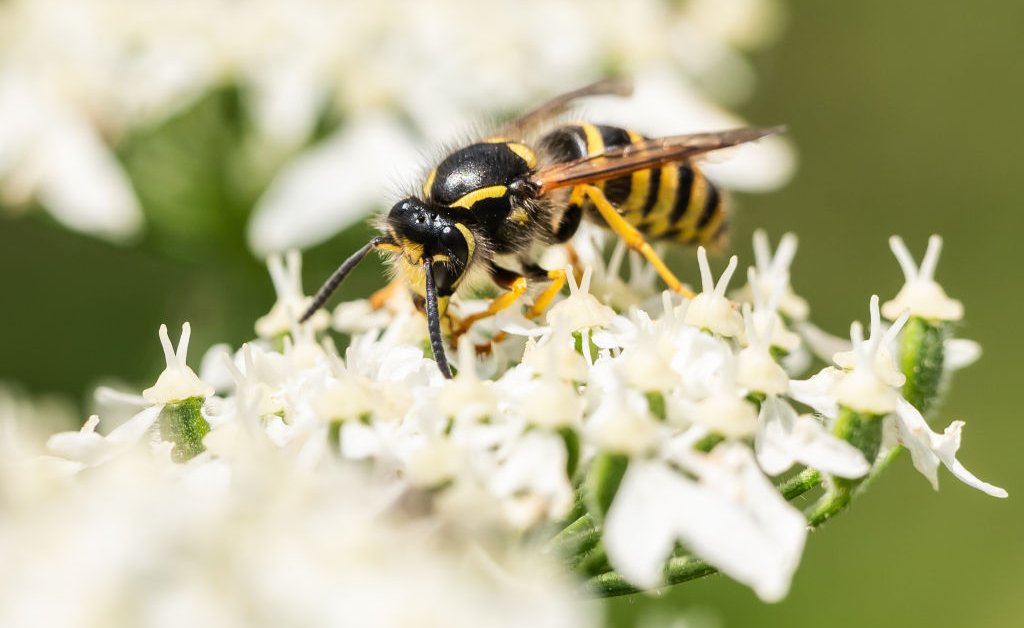Climate Change: Implications For Summer Insect Biodiversity

Welcome to your ultimate source for breaking news, trending updates, and in-depth stories from around the world. Whether it's politics, technology, entertainment, sports, or lifestyle, we bring you real-time updates that keep you informed and ahead of the curve.
Our team works tirelessly to ensure you never miss a moment. From the latest developments in global events to the most talked-about topics on social media, our news platform is designed to deliver accurate and timely information, all in one place.
Stay in the know and join thousands of readers who trust us for reliable, up-to-date content. Explore our expertly curated articles and dive deeper into the stories that matter to you. Visit Best Website now and be part of the conversation. Don't miss out on the headlines that shape our world!
Table of Contents
Climate Change: A Growing Threat to Summer Insect Biodiversity
Summer's vibrant buzz – the symphony of crickets, the industrious hum of bees, the fluttering of butterflies – is facing a serious threat: climate change. The implications for insect biodiversity are far-reaching and potentially catastrophic, impacting not only ecosystems but also human livelihoods. This article explores the multifaceted ways climate change is altering insect populations during the crucial summer months.
<h3>Rising Temperatures and Shifting Ranges</h3>
One of the most significant impacts of climate change on summer insect biodiversity is the rise in global temperatures. Many insect species have narrow thermal tolerances, meaning even small increases in temperature can drastically affect their survival and reproduction. This is particularly critical during the summer months when temperatures are already high. Warmer temperatures can lead to:
- Range shifts: Species are migrating to higher altitudes or latitudes in search of cooler habitats. This can disrupt established ecological relationships and lead to competition with existing species.
- Increased mortality: Extreme heat events can cause mass mortality, particularly for insects with limited physiological adaptations to heat stress.
- Altered life cycles: Changes in temperature can disrupt the timing of insect life cycles, such as egg laying, larval development, and pupation, potentially leading to mismatches with food availability or other crucial environmental cues.
<h3>Changes in Precipitation Patterns and Extreme Weather Events</h3>
Summer rainfall patterns are also being significantly altered by climate change. Prolonged droughts or intense rainfall events can severely impact insect populations. Droughts can lead to desiccation and reduced food availability, while floods can drown insect larvae and disrupt breeding habitats. Furthermore, the increased frequency and intensity of extreme weather events, such as heatwaves and storms, add further stress to insect populations, reducing their resilience and overall biodiversity.
<h3>Impacts on Plant-Insect Interactions</h3>
Many insects rely on specific plant species for food and habitat. Climate change is affecting plant phenology (the timing of seasonal events), which can lead to mismatches between insect emergence and the availability of their host plants. This phenomenon, known as "ecological mismatch," can have devastating consequences for insect populations that rely on specific plant resources. For example, if a butterfly emerges too early and its larval food plant hasn't yet leafed out, the larvae will starve. [Link to a relevant scientific article on ecological mismatch].
<h3>Consequences for Ecosystems and Human Society</h3>
The decline in summer insect biodiversity has cascading effects on entire ecosystems. Insects play critical roles as pollinators, decomposers, and a vital food source for many animals. Their decline can trigger a trophic cascade, impacting the entire food web. This has serious implications for human society, as insects are essential for agricultural production, contributing significantly to food security globally. The decline in pollinators, for example, can lead to decreased crop yields and increased food prices. [Link to a resource on the economic impact of pollinator decline].
<h3>Conservation Strategies and Mitigation Efforts</h3>
Addressing the threat of climate change to summer insect biodiversity requires a multi-pronged approach. This includes:
- Reducing greenhouse gas emissions: This is crucial for mitigating the long-term effects of climate change.
- Habitat restoration and creation: Providing insects with suitable habitats, including diverse plant communities, is vital for their survival.
- Protected area management: Establishing and effectively managing protected areas can safeguard insect populations and their habitats.
- Sustainable agricultural practices: Minimizing pesticide use and promoting biodiversity-friendly farming methods can help support insect populations.
The future of summer's buzzing symphony hinges on our collective action. By understanding the impacts of climate change on insect biodiversity and implementing effective conservation strategies, we can help protect these crucial components of our planet's ecosystems. Learn more about how you can contribute to insect conservation efforts in your community. [Link to a relevant conservation organization].

Thank you for visiting our website, your trusted source for the latest updates and in-depth coverage on Climate Change: Implications For Summer Insect Biodiversity. We're committed to keeping you informed with timely and accurate information to meet your curiosity and needs.
If you have any questions, suggestions, or feedback, we'd love to hear from you. Your insights are valuable to us and help us improve to serve you better. Feel free to reach out through our contact page.
Don't forget to bookmark our website and check back regularly for the latest headlines and trending topics. See you next time, and thank you for being part of our growing community!
Featured Posts
-
 Outrage And Controversy Follow Sergio Garcias Shocking Return To The Dp World Tour
Jun 01, 2025
Outrage And Controversy Follow Sergio Garcias Shocking Return To The Dp World Tour
Jun 01, 2025 -
 Autopen Controversy Trump Presses Biden On Official Letters
Jun 01, 2025
Autopen Controversy Trump Presses Biden On Official Letters
Jun 01, 2025 -
 Scheduling Showdown Djokovics French Open Bid Vs Champions League Final
Jun 01, 2025
Scheduling Showdown Djokovics French Open Bid Vs Champions League Final
Jun 01, 2025 -
 Oscar Piastri Secures Pole In Barcelona Upsets Lando Norris At 2025 Spanish Gp
Jun 01, 2025
Oscar Piastri Secures Pole In Barcelona Upsets Lando Norris At 2025 Spanish Gp
Jun 01, 2025 -
 This Tragic True Story On Netflix Is Unmissable Prepare For Tears
Jun 01, 2025
This Tragic True Story On Netflix Is Unmissable Prepare For Tears
Jun 01, 2025
